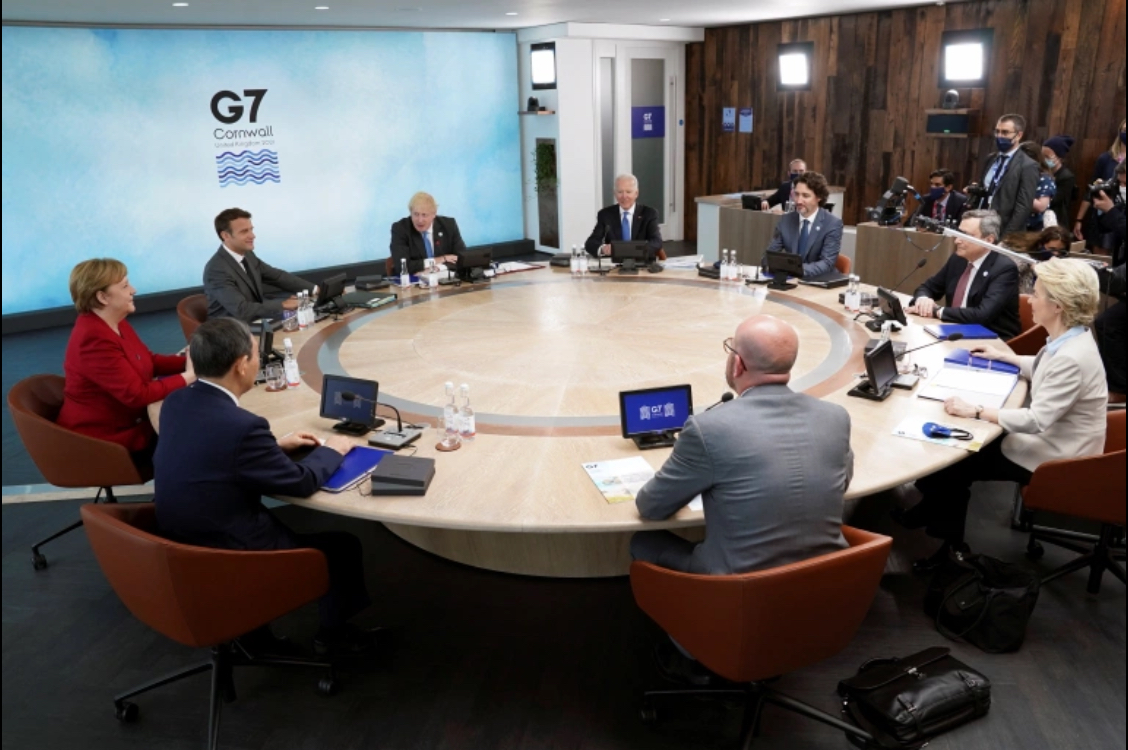The mood was convivial as G7 leaders gathered Friday for their first in-person talks in nearly two years, with an expected pledge to donate one billion Covid vaccine doses to poor countries on the agenda in a show of Western democratic cohesion.
The club of leading economies — Britain, Canada, France, Germany, Italy, Japan and the United States — say a joint approach is the world’s best chance for recovering from the global health crisis and tackling climate change.
President Joe Biden has set the tone, ditching Donald Trump’s isolationist stance to ram home a message of resolve by the G7 and NATO against both Beijing and Moscow, as he heads into his first sit-down with Russian President Vladimir Putin next week in Geneva.
“The driving animating purpose of this G7 summit is to show that democracy can deliver against the biggest challenges we’re facing in the world,” a senior US administration official said.
Campaigners say the G7’s vaccine donations pledge for this year and next — including 500 million US doses — is far too little, too late to end a pandemic that has claimed over 3.7 million lives worldwide.
“If the best G7 leaders can manage is to donate one billion vaccine doses then this summit will have been a failure,” Oxfam said, insisting the world needs 11 billion doses.
But the G7 has recognised it needs to rise to compete “vaccine diplomacy” efforts launched by China and Russia, with the Biden administration stressing it expects nothing in return for its donated jabs.
G7 leaders meeting at the seaside resort of Carbis Bay in Cornwall, southwest England, are also expected to outline more help for developing nations to build up infrastructure, as a counterpoint to the debt-fuelled spending by China in Africa, Asia and Latin America.
The initiative “will embrace high standards, transparent, climate-friendly, non-corrupt mechanism” for infrastructure investment in the developing world, the US official said.
“It will be an alternative to that which other countries, including China, are offering.”





